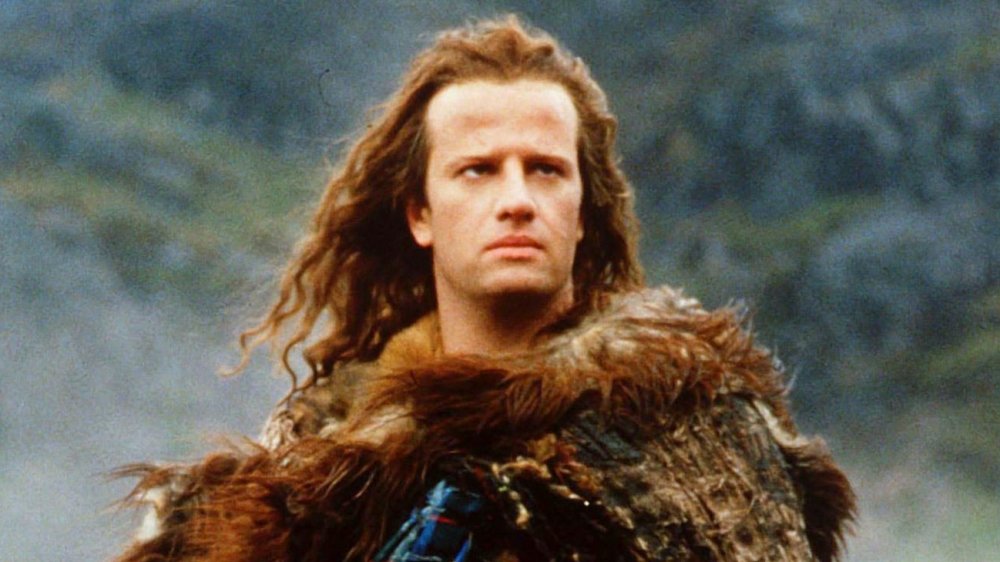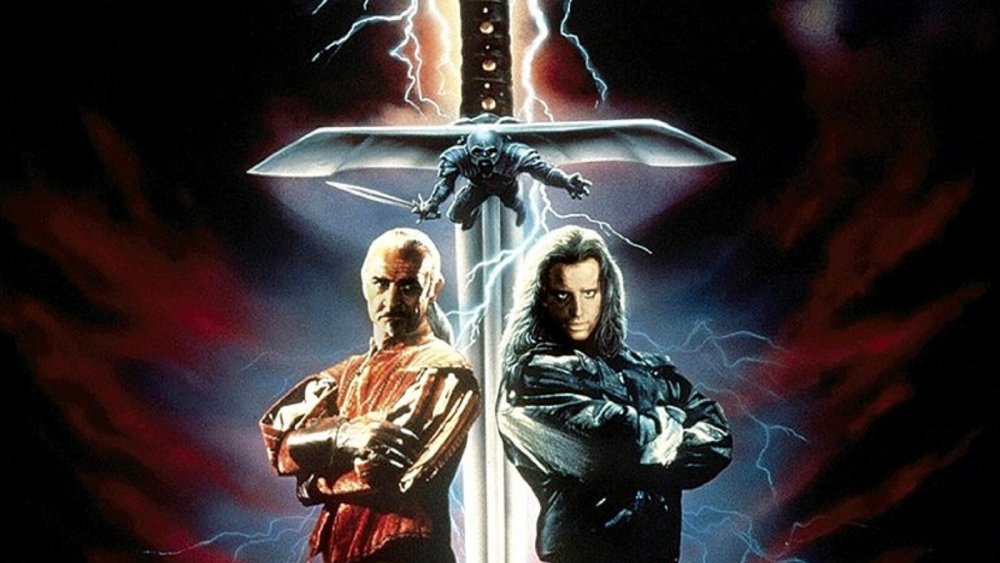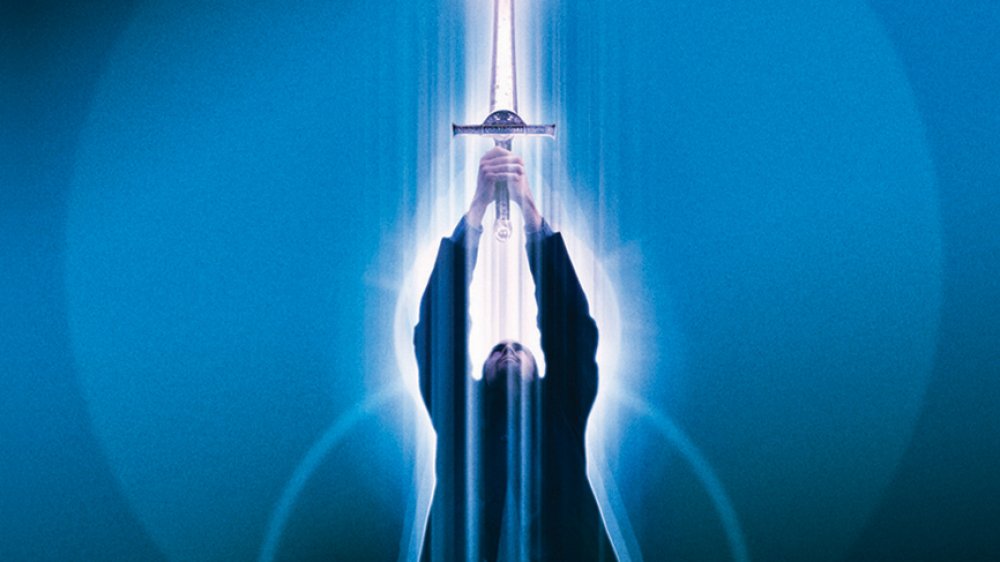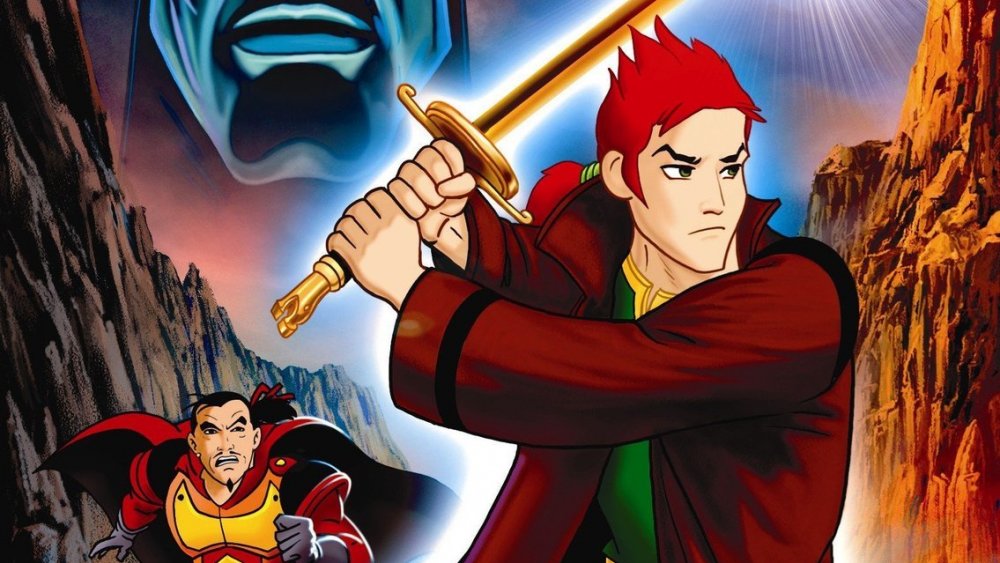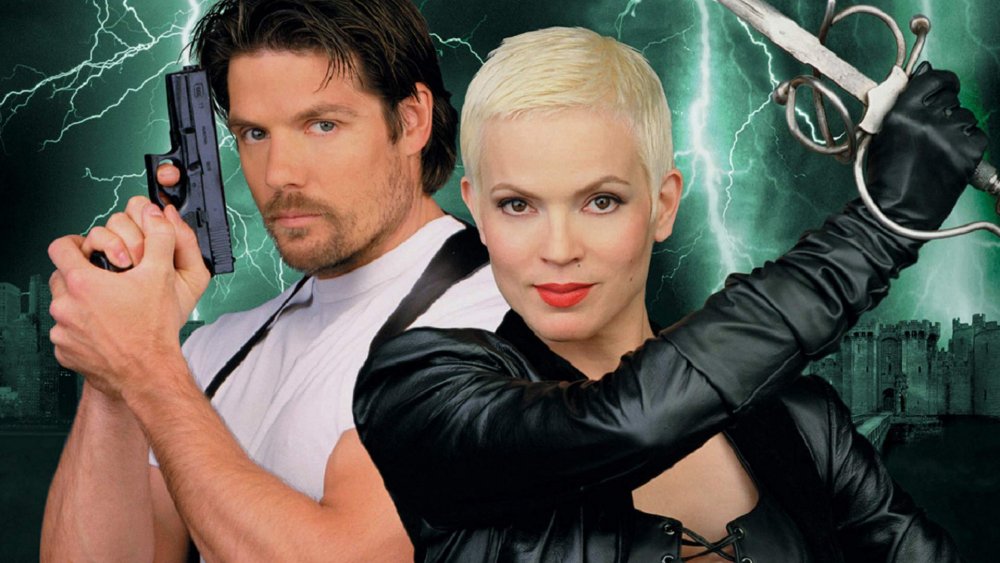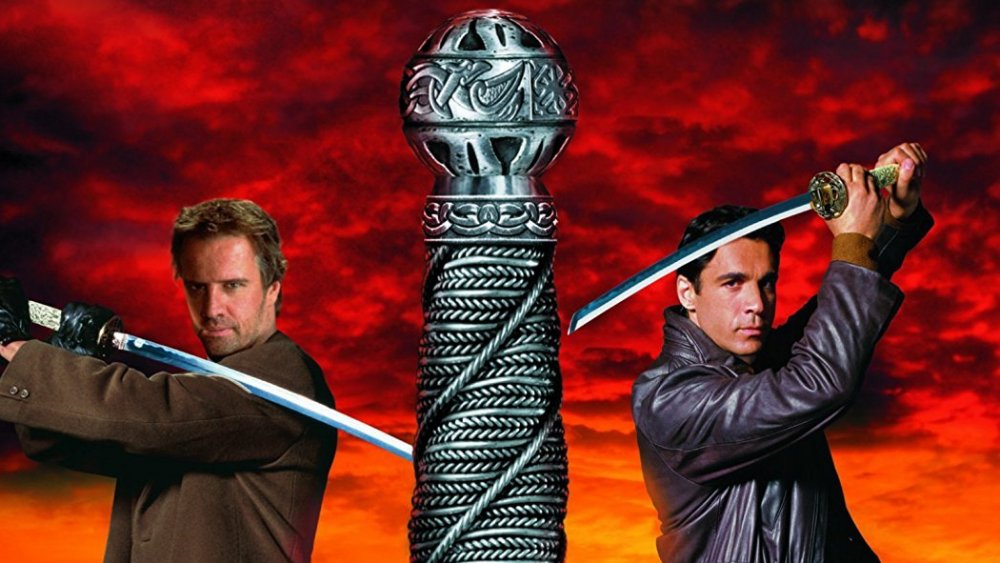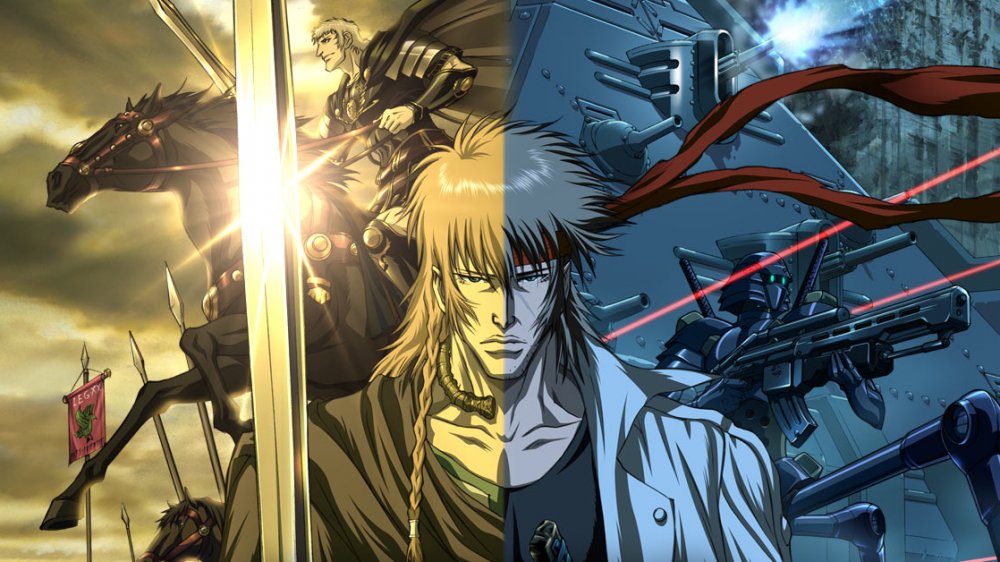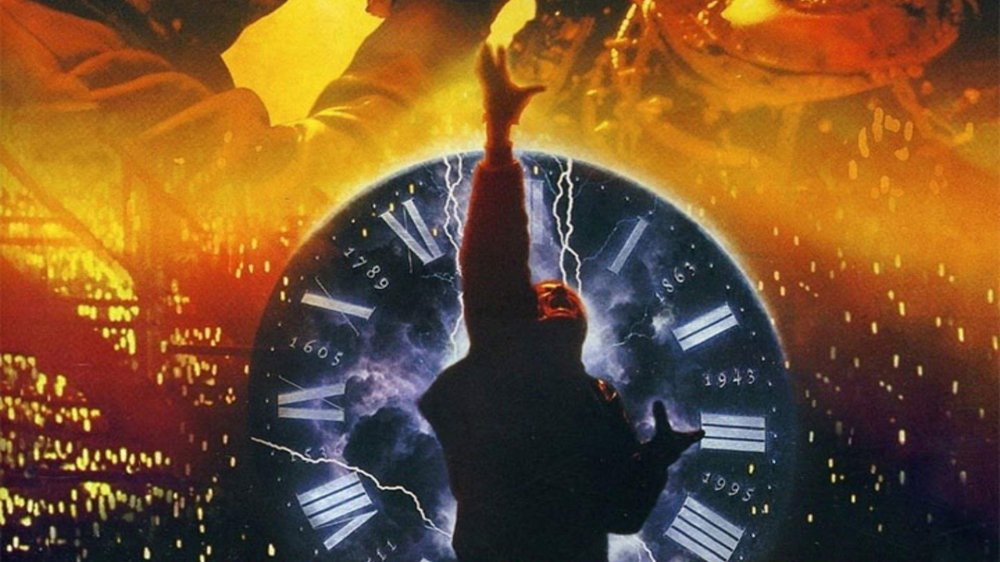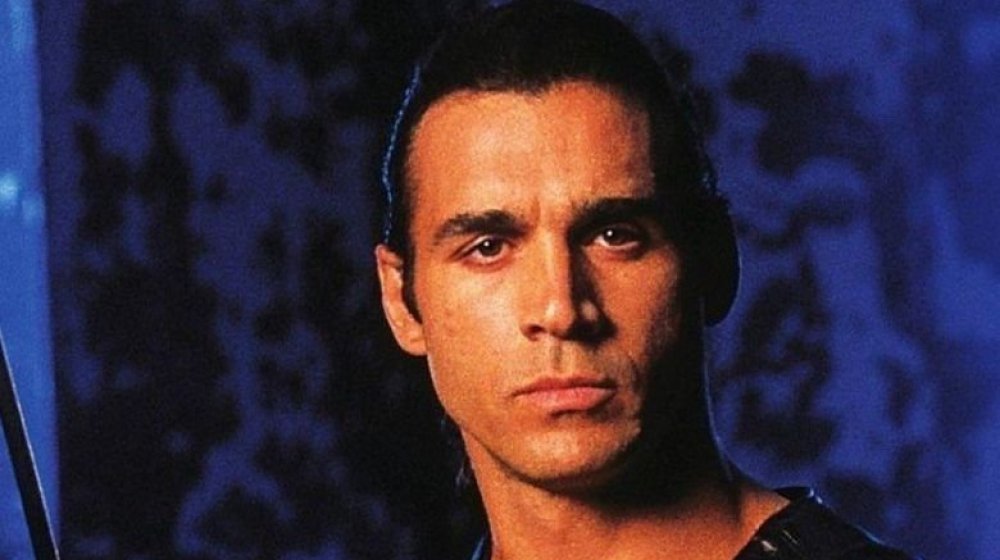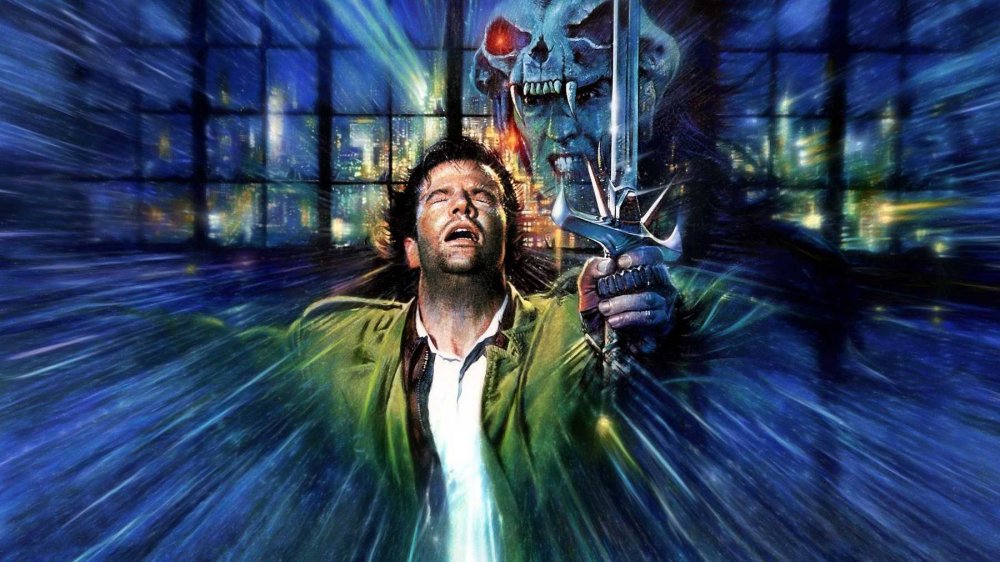Highlander Movies And TV Shows Ranked Worst To Best
There can be only one. So goes the most famous phrase from Highlander, a franchise that started back in 1986 with its first feature film. Fans wanted more, even if the original outing wrapped things up nicely. Thus, most of the following incarnations try something different, setting their stories in a new timeline or involving other planets. Sure, this resulted in retcons and a few moments of outright ignoring the canon. But no matter how many mistakes were made, Highlander couldn't be stopped, and discussions of a reboot continue today.
Creator Gregory Widen (Backdraft, The Prophecy) conceived a world of epic sword fights, historical flashbacks, loss, decapitation, and tons of lightning. Though not every Highlander property has been successful, the momentum of the series is undeniable, and has spread into various mediums. There have been multiple Highlander movies, television shows, books, comics, a short-lived collectible card game, and a web-series, as well as attempts at video games including a canceled MMO. Yes indeed, the Highlander franchise provides a whole lot of content for those who want to explore the world of the immortals further ... but not every fight is worth it. To help you navigate this sprawling franchise, we're here to rank the Highlander franchise's films and TV shows from worst to best.
Highlander II: The Quickening (1991)
It's tempting to give sequels to innovative movies credit for not simply rehashing old ideas. But there is such a thing as turning too drastically in a different direction, in the name of expanding on the initial premise and trying to up the ante. So it goes with Highlander II: The Quickening. This movie contradicts everything established by its predecessor that it can, in an audacious attempt to push the story into the future. According to Highlander II, immortals are actually aliens from the planet Zeist. That whole Gathering and decapitating each other thing was just punishment for a failed rebellion on a far-off planet. Somehow, despite all of this craziness, the film still manages to be boring.
Highlander II was majorly impacted by a variety of external catastrophes. Most dramatically, the film was almost entirely shot in Argentina, which was then being rocked by economic collapse. The film's investors stepped in and took control from director Russell Mulcahy, resulting in the mess the movie became. Several alternate versions of the film exist, which can be hard to find. But that's okay, as everyone other than completionists should skip this depressing film entirely. Highlander II was universally panned and performed wretchedly at the box office. It left a legacy of despair — but thankfully, the franchise knew to cut its losses. No other Highlander property acknowledges this egregious story.
Highlander: The Source (2007)
The Source might be considered the worst installment of the franchise overall ... if more people knew it existed. Here, viewers see a violent near-apocalyptic future where a group of immortals believe they have found the crux of their power. But it's protected by a potent guardian, and the ageless beings grow weaker the closer they get to the source. It isn't a great setup to begin with, and when we throw in a weak subplot involving Duncan MacLeod and his mortal wife, it gets even messier.
Somehow, everything the film introduces manages to feel stale the moment it appears on screen. It also indulges a few truly stupid impulses, like trying to augment the series' main catchphrase, "there can be only one." A lackluster plot is not improved by the presence of established characters. As for the villains, the over-acting is intense: For some reason, every bad guy dials the zany level up to 11, to the point of singing the theme song. This movie is somewhat saved by the fact that it wasn't shown in theaters, being a Syfy production, but that's a partial ransom at best. How the producers thought this could ever be the first in a trilogy of films is baffling. It may not have done as much damage to the franchise as Highlander II, but there is certainly an argument for it being just as bad in its own way.
Highlander: The Animated Series (1994-1996)
Highlander: The Animated Series takes place within a post-apocalyptic world, devastated by a meteorite that hit the Earth and set off a majority of the world's nuclear arsenal. The remaining immortals have decided to lay down their swords and try to help the planet — except an evil tyrant named Kortan. Now, a new immortal who has not taken the oath, Quentin MacLeod, will have to try and stop him from destroying what is left of humanity. Though it takes place in the 27th century, Connor MacLeod is there temporarily, and Ramirez is somehow back to act as a mentor again. They are joined by an annoying little girl and a strange ape-dog mascot creature.
The Highlander property simply doesn't work as a kiddie show. Violence and even death are present, but awkwardly toned-down: The main character, for example, fights with a boomerang. The show's stories aren't all just standard good versus evil, to its credit — many of the characters do have a small bit of depth to them, and there are genuinely intriguing moments. Even the lesson-specific tales — there's a gun safety episode — aren't terrible. But ultimately, Highlander: The Animated Series isn't a good cartoon, it just isn't too painful to watch. Its worst crime is the awful video game it spawned. Now that deserves a slow death.
Highlander: The Raven (1998-1999)
Toward the end of the main Highlander series, actor Adrian Paul departed to do movies. Four new immortal women were brought in for season six, to test who might be able to carry a spinoff series ... but none of them tested well. Instead, the decision was made to go on with Amanda, an already established character, and Highlander: The Raven was born.
This show suffers for focusing too much on Amanda's redemption and her new ex-cop partner, becoming more like a police procedural than anything else for the first stretch of episodes. Admittedly, the show does pick up after those installments, and manages to explore some finer details of the characters. This results in a dramatic cliffhanger that never gets resolved, as the show only got one season. Still, the writing is never quite up to par, and the show lives in the shadows of the original series, despite having a spectacular lead. Perhaps if more characters from Highlander: The Series had come over, things could have been a bit different. The best thing about The Raven is the way it proved that fans wanted to see more from the world of immortals.
Highlander: Endgame (2000)
Endgame attempts to be a passionate passing of the torch, bringing Duncan, star of Highlander: The Series, and Connor MacLeod, star of the original 1986 film, together to fight an enemy neither can face alone. Endgame looks good in spots, and has several scenes that showcase the chemistry between the two leads. Familiar side characters are a welcome sight, and there's even some decent action. It's difficult for anyone who hasn't scrupulously kept up with the franchise to follow, which is a problem it was criticized for at the time of its debut. But for those who are up on their Highlander knowledge, there's quite a lot to like here.
This movie tries to do something different, even if it falls apart a bit in the third act. That deserves respect — but it's also part of the problem. The plot is convoluted, and the movie plays fast and loose with many of the series' established rules for immortals, without making attempts to explain why these things do not matter anymore. Finally, the original trailer was incredibly misleading, showing the villain, Jacob Kell (yes, most Highlander movie baddies have K names for some reason) using some serious magical powers that he never uses in the finished product. Adding insult to injury, the trailer also has a fun Rob Zombie remix in it that doesn't make its way into the movie either.
Highlander: The Search for Vengeance (2007)
The Highlander anime is one of the least-known entries in the franchise, but it is also one of the better received. It's set in the distant future, with a new protagonist, Colin MacLeod. What traditional Highlander elements it leaves behind, it makes up for in well-crafted flashbacks. Respect for the source content doesn't end there: Jim Byrnes returns to the franchise to voice two characters here. Notably, The Search for Vengeance successfully tackles some of Highlander's crazier plot ideas, like the reincarnation of loved ones, which other installments attempt with less success. The anime format aids this tremendously.
David Abramowitz, a producer and writer on several of the live-action endeavors in the franchise, wrote the script for The Search for Vengeance, granting the film its pedigree and connection to the rest of the series. The action, sexuality, and swordplay all live up to the series' standards as well. But it's the animation itself that is the real draw of the film. It's the work of Madhouse, the celebrated anime studio behind Death Note, Paprika, and One-Punch Man. Vengeance's look is very reminiscent of previous Madhouse properties Vampire Hunter D: Bloodlust and Ninja Scroll, which works enormously in its favor. This one may be a bit off the beaten path for some fans, but The Search for Vengeance stands out as an entertaining detour.
Highlander III: The Sorcerer / The Final Dimension / The Final Conflict (1994)
The third installment of the Highlander series works overtime to distance itself from Highlander II. The movie is known by many subtitles, but the most accurate would likely be Highlander III: The Less Offensive One. It's the middle child of the franchise, the project that could never hope to be as good as the first film, while also having to make up for its predecessor's sins. Whereas Highlander II stands out to a fault, Highlander III plays it too safe, leaving it a forgettable film.
This doesn't mean it isn't entertaining at points. For one thing, it possesses some wonderfully cheesy '90s effects and action scenes. It also has an important flashback at the beginning that sets up the story in an intriguing way. MacLeod thinks his troubles are over, and has even adopted a son named John, but he's forgotten about an immortal who tried to kill him years ago, trapped in a cave with two of his lackeys. That man is Kane, excellently played by Mario Van Peebles, and his illusionary powers make him a suitable challenge for MacLeod. But all this is happening while audiences are saddled with a new love interest and a few new plot points that never come back around. This isn't a must-see movie, but it also isn't boring, and won't scar anyone who wants to experience more Highlander.
Highlander: The Series (1992-1998)
Highlander: The Series builds on the first film better than any of the other movies do, without having to get even half as crazy as they do to accomplish it. It takes place within an alternate timeline, where Connor hasn't won the Prize and the time of the Gathering is still approaching. Many elements keep it grounded: Familiar songs from Queen, similar themes of character development, a Kurgan-esque villain, and even a guest spot from Christopher Lambert. This story, however, follows another member of the MacLeod lineage, named Duncan MacLeod. All in all, it's a good premise with just enough distance from the original property, which ended up producing four or five (depending on who you ask) really good seasons of television.
The series offers decent period piece flashbacks, impressive sword fights, and serious character growth. Highlander: the Series expands on the world of the immortals, deepening the mythos and bringing in groups like the Watchers, all while endearing audiences with solid stories and new characters. The show takes a few episodes to hit its stride, but once it does, it stays there until season six. No one likes season six. Even with those faults, Highlander: the Series lives up to its namesake and comes close to standing above it.
Highlander (1986)
Highlander is an original idea (which began as a senior thesis) that blends action, emotion, excellent music from Queen, and the right amount of mystery to spectacular effect. Unfortunately, it didn't get much attention in theaters. The film that was originally titled The Dark Knight showcases a mainstay like Sean Connery, an excellent villain in Clancy Brown, and also introduced American audiences to Christopher Lambert, who had to learn English for the role. With these elements, it was destined to become a cult classic.
It's now easily regarded by most fans as the best installment in the series, and an important influence on later work. Using a modern setting for a story involving sword fights, supernatural abilities, and secret societies living amongst us can now be pointed to as early manifestations of the urban fantasy genre, setting an example for others to follow. This first movie is a classic hero's journey, telling the tale of Connor MacLeod, his past, and the Kurgan who pursues him through time, killing Connor's loved ones. It all ends in the Gathering, a clash of metal and muscle, with the Prize and the girl awaiting the last man standing. It is the story that other Highlander installments either try to tell again or reimagine. But this film still sits atop the mountain, the one it has always claimed there can only be.
